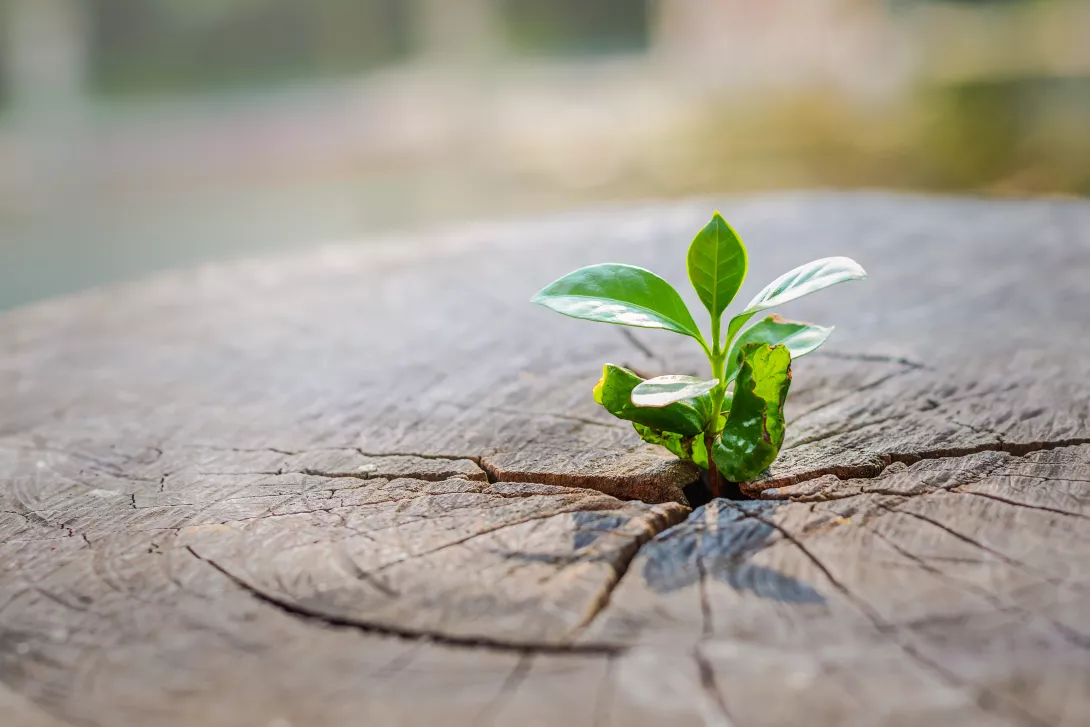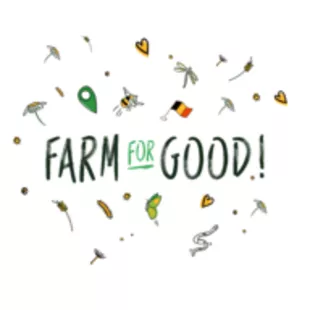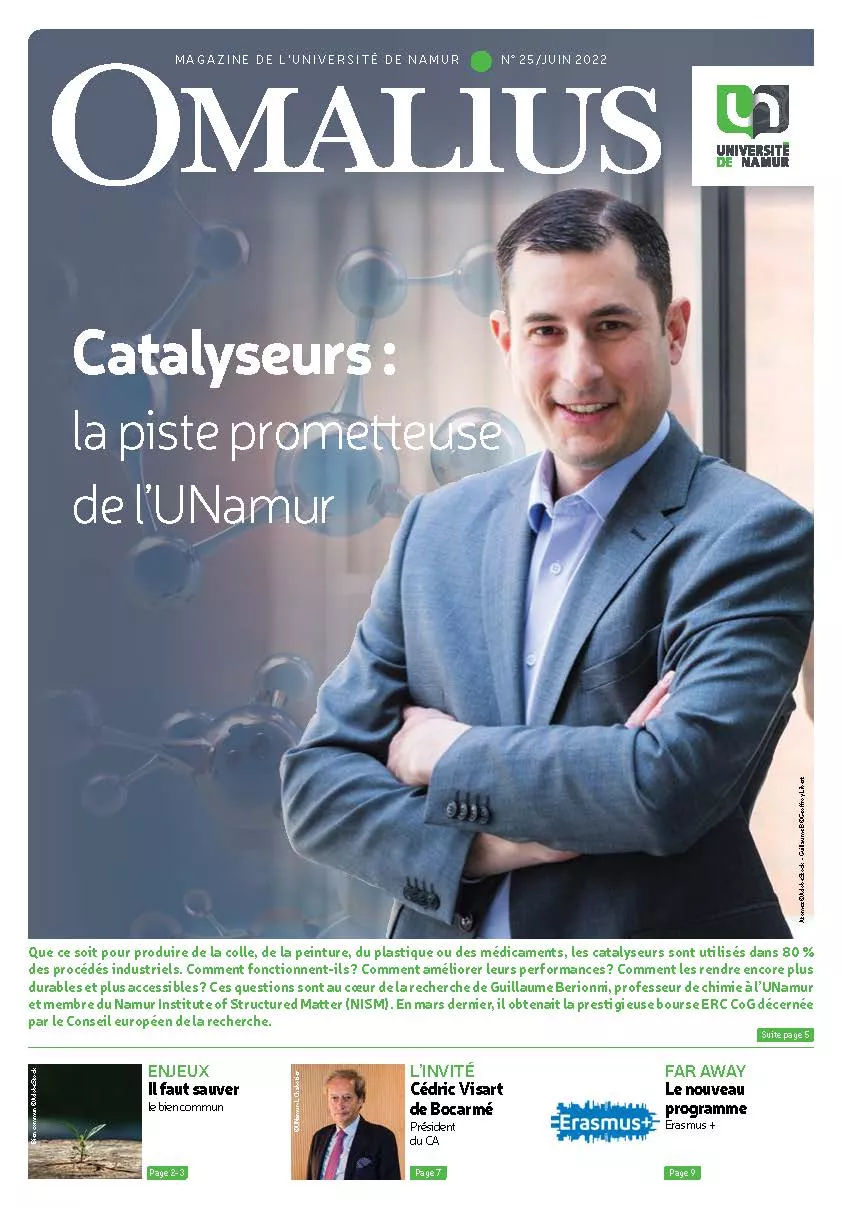
This article was produced for the "Issues" section of Omalius magazine #25 of June 2022.
For the philosopher Laura Rizzerio, the main architect of the future UNamur seminar on the common good, "We need to reconnect with the ancient notion of the common good. "Common" comes from the Latin "cum munus", "munus" meaning a gift, a form of remuneration for a task performed in the public sphere. Thus, from ancient times, the reference to the common good is linked to the awareness of belonging to a community. In Rome, but also in Greece, where the term for "common" is "koinon", which Aristotle says does not only mean putting goods together or living together, but participating together in the management of the common thing.
Personal happiness
The idea was taken up again in the Middle Ages, with the "common" being the whole of creation, entrusted by God to humanity. "Managing creation as a common good meant recognising this call from God," says Laura Rizzerio. "In the Middle Ages, as in Antiquity, reference to the common good went hand in hand with this common management, but also - and this deserves to be emphasised - with personal happiness: humans cannot be fully accomplished without investing in this community dimension.
From the common good to the general interest
But with individualism, "which appeared in modern times and philosophically with Descartes", the common good gave way to the general interest, i.e. the sum of particular interests, managed by the State and now conditioned by the market situation.
"The result is that we are now in a major crisis," insists Laura Rizzerio, "because our model of society has led us to devastate nature, creating an imbalance that is responsible not only for droughts and floods, but also for pandemics such as the one we are just emerging from, with their catastrophic chain of economic crises, appropriation of natural resources, wars, impoverishment, migrations, etc."
Transformation
A societal and even paradigmatic change is therefore necessary. "All the dysfunctions of our societies stem from the same logic - ever more growth, it is imperative to 'control' everything, the exploitation of certain peoples by others is justified, etc. - which are in fact of the same order. - These are paradigms," says Claire-Anaïs Boulanger, a doctoral researcher in management science. "Paradigms that we often have the impression are abstract or that they are played out at higher levels, so that we believe them to be unassailable. But it is also because they are embedded in our mental patterns that we are unable to break out of them. So for many of us, success in life still means 'more and more'. A bigger house, a more powerful car, a job with more responsibility, etc. This is also the paradigm of growth. If I want to transform my brain so that it no longer functions according to a capitalist logic, I must change my thought structure. Only then will it be possible to rebuild the system, with others, according to a different logic.
Overexploitation...
And thinking about the common good, and more broadly about the commons, could well be the first step in this direction. As Claire-Anaïs Boulanger points out: "A common good is a resource that benefits a community and is managed according to rules established by it. For example, a fishery can be said to be a common if it is managed collectively by its users, guaranteeing both the sustainability of the resource (the fish) and its access to all. However, as Nicolas Dendoncker, head of the Department of Geography at UNamur and coordinator of a Master's degree in rurality, reminds us, there was a time when this informal collective ownership of resources was seen as leading straight to disaster. In a 1968 article entitled The Tragedy of the Commons, the American biologist Garret Hardin used the example of grazing land (each herder serving his own self-interest by adding as many animals as possible to his herd, without concern for other herders) to argue that when several users have access to the same resource, the inevitable result is the over-exploitation, depletion and eventual destruction of that resource.
... to joint management
"For Hardin, the preferred means of escaping this 'tragedy' was widespread privatisation: the division of pastures into private plots," comments Nicolas Dendoncker, "and the liberal world in which we live continues in this vein, practising the excessive privatisation of resources. Whereas, as the future Nobel Prize-winning economist Elinor Ostrom demonstrated in the 1990s, managing the commons in common, according to rules of sharing and reciprocity, contributes to their sustainability. Whether it is a question of 'material' commons, such as pastures or fisheries, or 'immaterial' commons, such as the climate. "Almost everyone agrees that with our current practices, we are heading straight for the wall," insists Nicolas Dendoncker, "but because there is very strong resistance from powerful lobbies that have links with the political world at all levels, this does not change.
A different system
Or at least not fast enough. Hence the creation of small, often rural, communities that have decided to 'do the system differently'. "The problem is that these are often 'inter-island' communities, where everyone has similar aspirations," Claire-Anaïs Boulanger points out, "but on a societal scale, the common good also involves people we dislike: it cannot exist without a diversity of viewpoints. Another challenge for these communities is to avoid being swallowed up by the outside world, without breaking the links with it. If a few of us create a small autonomous system cut off from the outside world, we have no chance of contributing to the transformation of the large system we are closing ourselves off from.
The agroecological ideal
For Nicolas Dendoncker, making a successful transition to the common good may require going beyond the notion of resources. "In our Western societies, there is still a dominant perception of nature, or rather of non-human life, as an economic asset. This is to the detriment of other important values, such as respect for nature as it is and our relationship with it. Hence the interest in agroecology, which is not guided by economic considerations, but is based on the principle of understanding living things. "It is no longer a question of exploiting living organisms,' explains Nicolas Dendoncker, 'but of making them our allies. Agroecology is based on living soils, on an extensive ecological network that must serve as a habitat for crop auxiliaries, on better use of organic matter, etc. In short, on a relationship with living organisms. In short, it is based on a relationship with living organisms that is very different from the one we have today.
It works!
Even if these agro-ecological practices, which are in line with a management of the commons that consists, according to Claire-Anaïs Boulanger's definition, of 'creating value for all living things', are still hampered by financial problems and a lack of knowledge, some fine successes are emerging, for example in the context of agri-food reterritorialization. "I am supervising a doctoral student, herself a farmer, who has developed a network of farms in transition called Farm for Good and recreated local supply chains, in particular for the first Belgian organic mustard, with the company Bister", explains Nicolas Dendoncker, "and another who has just won a thesis prize, the RA Award for Future Generations, for having shown that agro-ecology provides more services to society than conventional practices.

15%
And, as the discourse on transition announces a tipping point as soon as large minorities (15% of the population is enough) start to think and act differently, there is reason to be, if not optimistic, at least positive. "But be careful," says Laura Rizzerio, "let's not fall into the trap of 'everyone has to do it, so it will change'. What will guide us towards the search for the common good is individual awareness of the importance of change, which is the opposite of voluntarism: I do what I can, without falling into radicalism, I still take the plane and, in case of emergency, I order on Amazon, but knowing that in the long term, these are attitudes that I will have to change. In my opinion, it is this questioning of attitudes that will make things move forward, not the 'you have to', nor the guilt-tripping!
The common good is fun!
No doubt some people are still reluctant to question their way of life, because they know that any change involves often painful renunciations. "But it is going to become increasingly difficult to continue to enjoy the current system while being constantly reminded that it is going to break down and with us," Claire-Anaïs Boulanger summarises. "My hope is that at some point the alternative - the call of the common good - will become more fun and joyful than standing still. Transition is not only a path of mourning: it is also a path of exploration, of discovery, of meeting the other, marked by exciting exchanges and irresistible challenges.
A community like no other: the hospital
Reading an article in which the forest is described as a common good, Dr Geneviève Guillaume, a surgeon and bioethics researcher, wondered: "Could this way of considering the management of the forest as a common good be transposed to another ecosystem: the hospital?
A cycle on the common good
During the academic year 2022-2023, the Centre Universitaire Notre-Dame de la Paix (cUNdp) of UNamur will devote its Chair to the common good and its relationship with the commons. It will be a cycle of lectures, given by specialists from different disciplines. "Suggesting ideas for a new societal model is the goal of university research," says Laura Rizzerio. "We are in a paradigm revolution, as the philosopher and scientist Thomas Kuhn would say: we have gone so far in adjusting the paradigm that it will eventually collapse. The problem is to build a new one. And thinking about the commons is the first stone in this construction. The Chair's programme is available on the cUNdp website.
This article is taken from Omalius magazine #25, June 2022.


